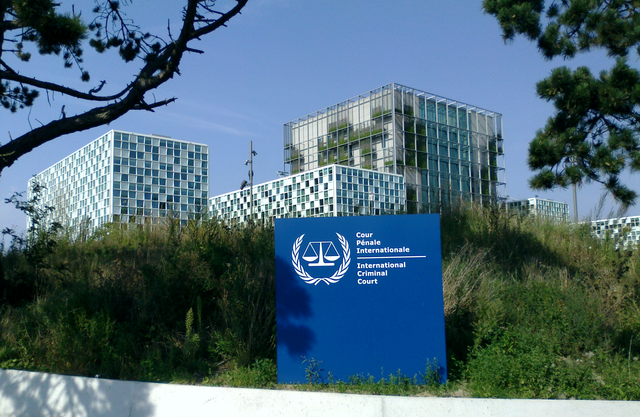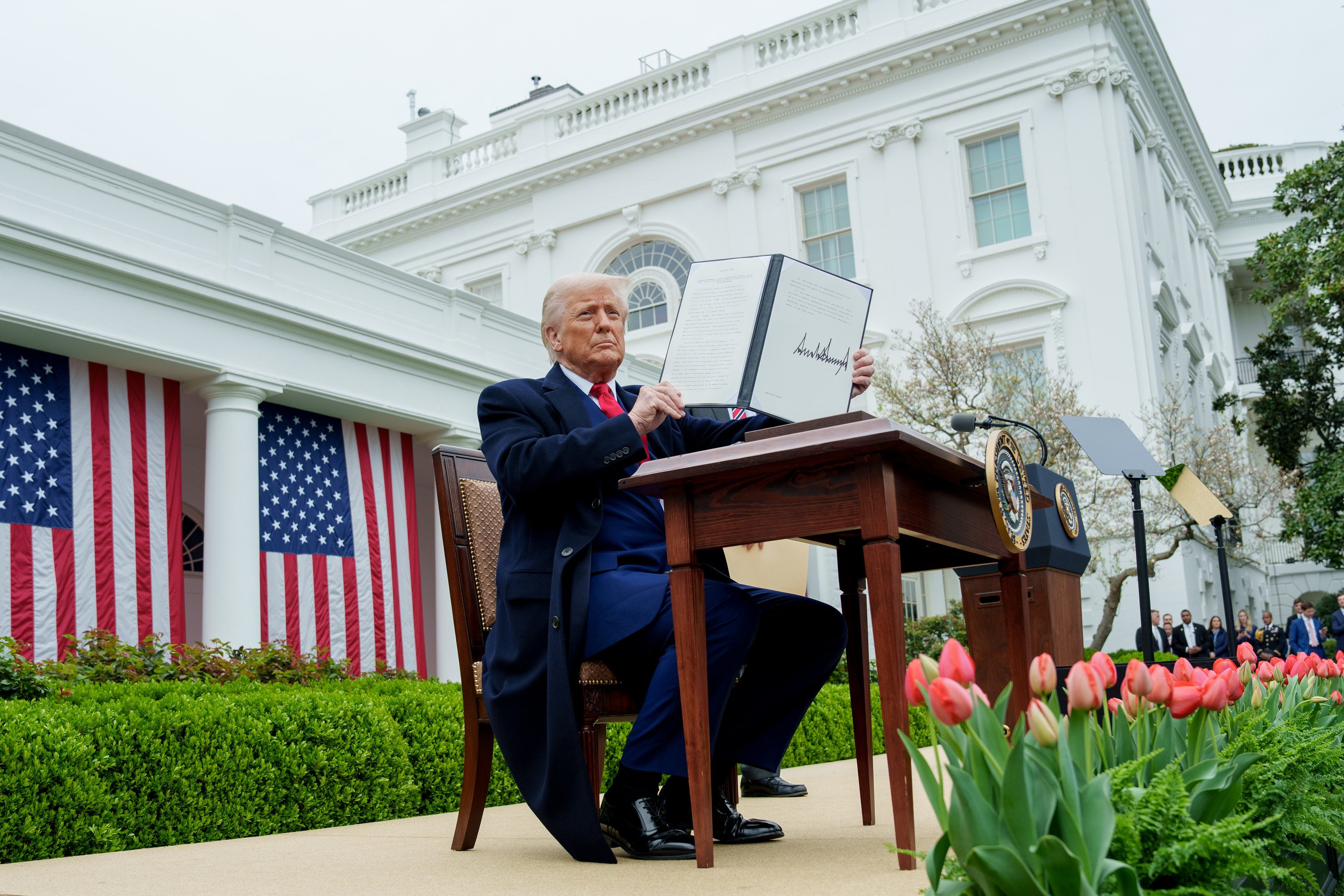U.S. Imposes Visa Ban on International Criminal Court Prosecutor
On April 4, the United States revoked the visa of International Criminal Court (ICC) Prosecutor Fatou Bensouda over her investigation of U.S. troops in Afghanistan. The ICC recently rejected that request, though the ban still presumably remains in place and marks an escalation in tensions between the Trump administration and the ICC.

Published by The Lawfare Institute
in Cooperation With

On April 4, the United States revoked the visa of International Criminal Court (ICC) Prosecutor Fatou Bensouda over her investigation of U.S. troops in Afghanistan. The ICC recently rejected that request, though the ban still presumably remains in place and marks an escalation in tensions between the Trump administration and the ICC. As this post explains, the precise legal effect of the ban is uncertain and turns on how the U.S. interprets its obligations under the United Nations Headquarters Agreement. On the one hand, the U.S. can argue it has the right to restrict Bensouda’s entry into the country based on what it considers a security reservation to the agreement. On the other hand, the U.N. could counter that no such reservation exists, and that if it did the U.S. must allow Bensouda to attend Security Council meetings in New York, even if it restricts her travel to other areas of the country. While the ICC’s decision to decline an investigation may quell some of the U.S.’s hostility, the ban’s outcome should become clear in the next few weeks as Bensouda prepares for her semiannual briefing to the Security Council on the situations in Libya and Darfur.
The ICC Has Declined to Authorize an Investigation Into Afghanistan
In its April 12 decision, the Pre-Trial Chamber rejected Bensouda’s request for authorization to investigate war crimes and crimes against humanity allegedly committed on the territory of Afghanistan since May 1, 2003, and other war crimes closely linked to the situation in Afghanistan that were allegedly committed on the territory of other states since July 1, 2002. According to Bensouda, the alleged crimes related to the United States include the war crimes of torture, cruel treatment, and outrages on personal dignity by U.S. armed forces and CIA personnel. Specifically, Bensouda had a reasonable basis to believe that U.S. armed forces committed 54 instances of alleged mistreatment and that the CIA committed 24. A majority of the alleged abuses occurred in 2003–2004.
Afghanistan has been a party to the ICC since February 2003, which means the ICC has jurisdiction over any Rome Statute crime—war crimes, crimes against humanity, genocide and the crime of aggression—that occurred on its territory after May 1, 2003, regardless of the nationality of the alleged perpetrator. As Alex Whiting, the former prosecutions coordinator at the ICC explains, the Office of the Prosecutor has proceeded with a preliminary investigation into Afghanistan for the past 10 years.
Based on the information Bensouda submitted, the Pre-Trial Chamber determined that she established a reasonable basis to consider that crimes under ICC jurisdiction occurred in Afghanistan and that cases would be admissible before the ICC. However, the Chamber noted a long period of time has elapsed between when the crimes occurred and when the investigation would begin, making it difficult to obtain and preserve evidence. In addition, the judges pointed to “subsequent changes within the relevant political landscape both in Afghanistan and in key States (both parties and non-parties to the Statute), coupled with the complexity and volatility of the political climate still surrounding the Afghan scenario” that make it difficult to “gauge the prospects of securing meaningful cooperation from relevant authorities for the future, whether in respect of investigations or of surrender of suspects.” Finally, the Chamber pointed to the “significant amount of resources” an investigation would require in light of the ICC’s limited budget.
Overall, though the request for an investigation satisfied the ICC’s jurisdiction and admissibility requirements, “the current circumstances of the situation in Afghanistan are such as to make the prospects for a successful investigation and prosecution extremely limited” and would be unlikely to “result in meeting the objectives listed by the victims favouring the investigation.” Accordingly, the Chamber concluded that an investigation at this stage would not serve the interests of justice (a position that is sure to generate controversy; see these posts from Kevin Jon Heller and Dov Jacobs).
The Trump Administration’s Response to the ICC
Though the investigation into Afghanistan may now play less of a role, Bensouda’s actions over the past year provoked a sharp reaction from the U.S., which has viewed the ICC with ambivalence or hostility since it began operations in 2002. That hostility and rhetoric has increased in recent months under the Trump administration and National Security Adviser John Bolton. In September 2018, Bolton stated the ICC would face “consequences,” including travel restrictions and potential economic sanctions, if the investigation advanced.
In his speech, Bolton explained that the ICC “unacceptably threatens American sovereignty and U.S. national security interests,” because the prosecutor “claims essentially unfettered discretion to investigate, charge, and prosecute individuals, regardless of whether their countries have acceded to the Rome Statute.” Moreover, Bolton argued the ICC is unnecessary because the “domestic U.S. judicial systems already hold American citizens to the highest legal and ethical standards,” and “[w]hen violations of law do occur, the United States takes appropriate and swift action to hold perpetrators accountable.” Finally, he asserted that the ICC claims jurisdiction over crimes with disputed and ambiguous definitions, fails to deter and punish grave crimes, and faces criticism from more than 70 nations that have refused to join it.
The Ban’s Contested Legal Effect
As Elena Chachko explained in a previous Lawfare post, the U.S. government’s authority to impose travel restrictions on ICC personnel likely comes from Section 212 of the Immigration and Nationality Act, which is codified at 8 U.S.C. § 1182 and governs inadmissible aliens. Under § 1182(a)(3)(C), “[a]n alien whose entry or proposed activities in the United States the Secretary of State has reasonable ground to believe would have potentially serious adverse foreign policy consequences for the United States is inadmissible.” In 2002, Congress also passed another law, the American Servicemembers’ Protection Act—known informally as the Hague Invasion Act because it authorizes the use of force to rescue U.S. troops detained at the Hague—which broadly restricts the U.S. from providing funding and assistance to the ICC.
Yet the ban’s precise legal impact remains uncertain. As the Supreme Court’s opinion last term in Trump v. Hawaii made clear, the executive branch has considerable latitude to restrict the entry of aliens on national security grounds. In that case, the court construed 8 U.S.C. 1182(f) to grant the president broad discretion to suspend the entry of any foreign nationals when their entry “would be detrimental to the interests of the United States.” At the same time, the U.S. also has competing obligations under international law, specifically as a host country to the United Nations.
New York is home to the United Nations Headquarters District, an area of land “under the control and authority of the United Nations.” Although U.S. federal, state, and local laws apply within the Headquarters District, the U.N. can also make regulations within the district under Section 8 of the United Nations Headquarters Agreement. In cases of inconsistency between a U.S. law and a U.N. regulation, the inconsistent part of the U.S. law does not apply within the Headquarters District.
As Dapo Akande and Marty Lederman explain, the Headquarters Agreement may provide ICC personnel with certain rights and privileges, including access to the headquarters building. Under Section 11 of the agreement, “[t]he federal, state or local authorities of the United States shall not impose any impediments to transit to or from the headquarters district of ... (5) other persons invited to the head-quarters district by the United Nations or by such specialized agency on official business.” Section 13(a) of the agreement also makes clear that “[w]hen visas are required for persons ... they shall be granted without charge and as promptly as possible.” Since Bensouda would attend the meetings at the Security Council’s invitation and for “official business,” the United States’s obligations under the agreement would supersede the domestic visa restriction as a matter of international law. In his statement last month, Secretary of State Mike Pompeo noted that “[t]he United States will implement these measures consistent with applicable law, including our obligations under the United Nations Headquarters Agreement.”
On the other hand, as Akande points out, the U.S. contends that when it brought the Headquarters Agreement into force it also made a reservation to protect national security, which permits restrictions on who can enter the country. This is supposedly reflected in Section 6 of Public Law 80-357 (1947), which states that “[n]othing in the agreement shall be construed as in any way diminishing, abridging, or weakening the right of the United States to safeguard its own security and completely to control the entrance of aliens into any territory of the United States other than the headquarters district and its immediate vicinity ... and such areas as it is reasonably necessary to traverse in transit between the same and foreign countries.”
According to Akande, the U.S. not only maintains that Section 6 is a reservation (a position that the U.N. disputes) but also expansively reads that reservation in two parts: “[T]he first part is a general reservation which allows the US ‘to safeguard its own security’ and then there is a second, and separate part which preserves the right of the US to ‘completely to control the entrance of aliens into any territory of the United States other than the headquarters district[.]’” Under this view, which the State Department and the Department of Justice presented in a joint memorandum, the reservation applies to the whole Headquarters Agreement, not just the section on access to the Headquarters District. As noted above, Bolton’s speech claimed the ICC “unacceptably threatens American sovereignty and U.S. national security interests”—if its reading of the reservation proves correct, the U.S. could try to deny ICC personnel entry to the country based on security grounds. Of course, the U.S.’s claim that the ICC directly threatens national security is diminished now that the Pre-Trial Chamber has declined to investigate the situation in Afghanistan, but the Trump administration’s relationship with the ICC generally will remain an open question.
By contrast, the U.N. has argued that the U.S. failed to make any reservations when the two entities adopted the Headquarters Agreement, and that even if a security reservation did exist “[i]t refers to control by the United States of the entrance of aliens into any territory of the United States other than the Headquarters District, its immediate vicinity, and the necessary area of transit” (emphasis in the original). Thus, the U.S. has an obligation to permit entry to the Headquarters District even if it restricts travel to other areas of the country.
If a dispute arises between the U.S. and the U.N., and the two sides fail to reach a negotiated settlement, the matter could end up before an arbitral tribunal under Section 21 of the Headquarters Agreement. Ultimately, as Akande notes, the issue will turn on the answers to fundamental questions including whether the Headquarters Agreement entered into force free from reservations.
Thus far, 22 states have “expressed serious concern” about the United States’s travel restrictions and threat of other measures and “unequivocally reconfirmed” their support for the ICC. In response to the ban, Bensouda’s office stressed her “independent and impartial mandate” and that it would undertake that duty with “commitment and professionalism [and] without fear or favor.” Moreover in a press release addressing the Pre-Trial Chamber’s decision Bensouda also added that her office would “further analyse the decision and its implications, and consider all available legal remedies.”





